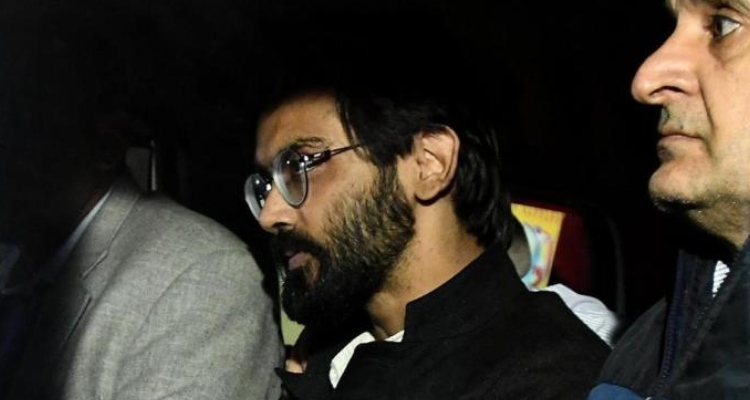
Activist Sharjeel Imam has approached the Delhi High Court on Thursday to challenge a recent order issued by the Saket Court, which directed the framing of charges against him in connection with the 2019 Anti-CAA protest case.
Imam’s legal team argues against the trial court’s characterization of him as a key figure in a larger conspiracy to provoke violence during the protests.
Court’s Remarks
The trial court had previously remarked that Imam was not only an instigator but also a significant conspirator who played a pivotal role in a larger plot to incite violence. The protests, initially sparked by the Citizenship Amendment Act (CAA) and National Register of Citizens (NRC), escalated into violence, leading to allegations of burning buses, assaulting public servants, and damaging public property by unlawful assemblies.
Imam’s speech, which was allegedly inflammatory, is said to have incited violence and triggered chaos. The trial court observed that Imam, a senior Ph.D. student, deliberately avoided directly targeting communities other than Muslims. However, his words were seen as indirectly encouraging his primarily Muslim audience to disrupt societal order. The court particularly noted the risk posed by a “chakka jaam” (road blockade) in a densely populated city like Delhi, which could endanger lives by obstructing emergency services.
More Into The Case
Justice Sanjeev Narula’s bench has issued a notice on Imam’s plea and scheduled the next hearing for April 24. Imam’s legal representatives, Advocates Talib Mustafa and Ahmad Ibrahim, have also filed an application seeking an interim stay on the impugned order. However, the court has clarified that it will not grant a stay at this stage and will first wait for the prosecution’s response.
In addition to the challenge against the trial court’s decision, Imam’s legal team is also seeking a stay on the order. The Delhi High Court will consider the request during the upcoming hearing.
Charges Against Imam & Co-Accused
The trial court has framed multiple charges against Imam, including promoting enmity, abetment, criminal conspiracy, assault, and damage to public property under various sections of the Indian Penal Code (IPC). Imam is facing charges along with co-accused Ashu Khan, Chandan Kumar, and Asif Iqbal Tanha. Nine additional individuals have also been charged under similar provisions, though several others have been discharged. Some accused individuals have been declared proclaimed offenders, and the charges against them will be considered once they appear before the court.
The charge of sedition under Section 124A IPC has been kept in abeyance following a Supreme Court directive from May 11, 2022.
Allegations Of Inflammatory Speech & Violence
The court took serious note of allegations that Imam delivered provocative speeches at various locations, distributed inflammatory leaflets, and instigated gatherings that led to violence and traffic disruptions. The Special Public Prosecutor contended that Imam’s speech incited hatred and encouraged widespread violence, which the court described as a calculated attempt to pit one religion against another.
In his defense, Imam’s counsel argued that he neither participated in the unlawful assembly nor incited violent activities. They maintained that his speech did not promote enmity or disharmony and that invoking Section 153A IPC, which addresses the promotion of enmity between different groups, was inappropriate in this case.
As the case continues to unfold, the Delhi High Court’s upcoming decision will be crucial in determining whether Imam will face trial for the charges laid out by the trial court. The case remains a significant development in the ongoing legal challenges surrounding the 2019 Anti-CAA protests, which have continued to fuel debates on the limits of free speech and the definition of incitement to violence.
Read More: Supreme Court, Delhi High Court, States High Court, International




